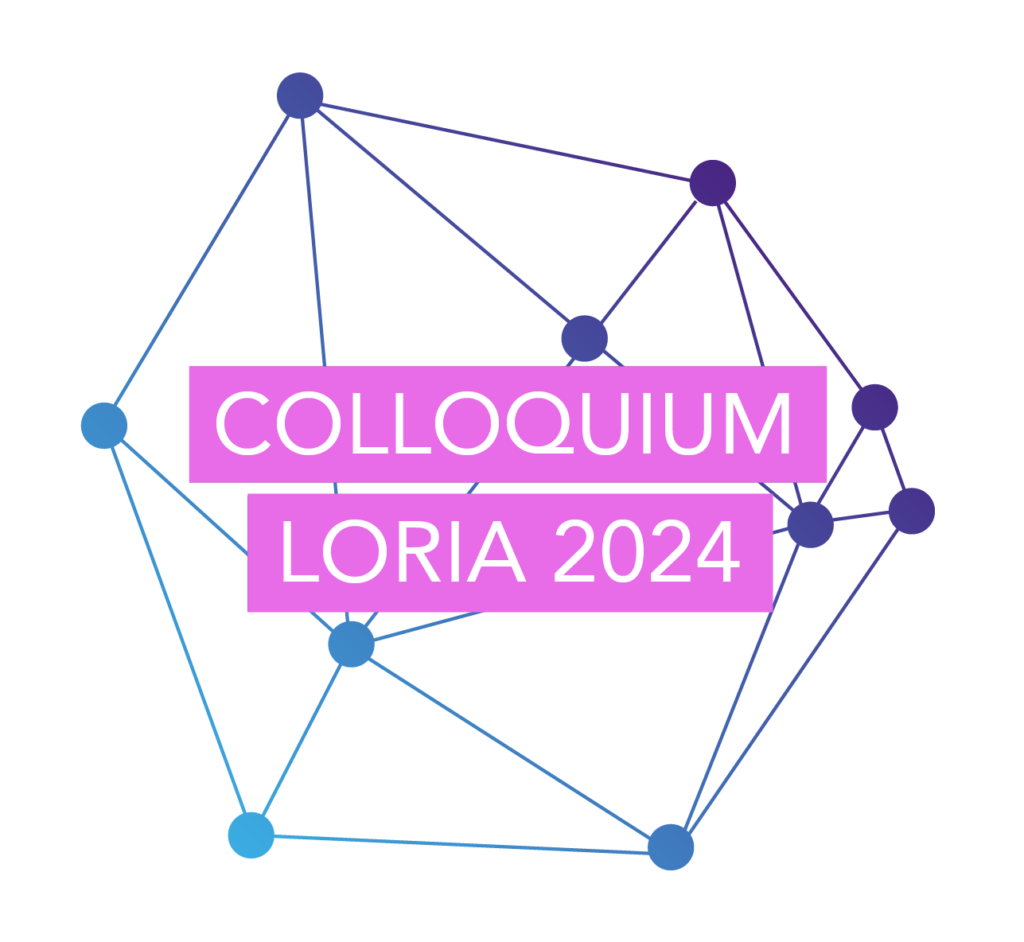[PHD 2023] Learning and adaptation for swarm of robots
Important dates:
- Application deadline :may23rd2023
- Decision by the laboratory: juin9th2023
Supervisors:
- AlainDutech, Research scientist HDR at INRIA
- Amine Boumaza, Associate Professor at Université de Lorraine
Abstract
Imagine a swarm of miniature robots capable of evolving in an environment to perform a task (exploration, fault detection, cleaning, etc.). Suppose the environment is unknown and robots have a limited field of perception and action. Designing such systems in the general case is for the moment an open problem where traditional approaches struggle to work and where other approaches based on the distribution of calculation, randomess and parsimonious exchange of data, manage to find suboptimal but functional solutions. Broadening the scope of these algorithms and better understanding how they work will be the questions that this proposal will try to answer.
Mots-clés: Evolutionary robotics, robots swarms, learning and adaptation.
Contexte
This proposal falls within the framework of artificial intelligence and more specifically that of the automatic design of robotic agents with autonomous behaviors allowing them to best adapt to their environment. An agent is considered here as a robotic entity with limited sensorimotor capabilities, capable of evolving autonomously in a dynamic and partially known environment. The end goal is to automatically design the behavior of agents that best allows them to achieve a given goal. This proposal will try to contribute to this theme by studying how to learn the behaviors of aswarm of robots by evolutionary learning (Evolutionary Robotics )[4]. Robot swarms are systems composed of a large number of relatively simple robots (on the order of several dozen). Due to the large number of units, these systems have good robustness and scalability properties. Nevertheless, designing systems of this nature to perform interesting tasks remains an important challenge for which traditional approaches (machine learning, deeplearning) are not usable. Automated and decentralized approaches such as Embodied Evolutionary Robotics[1] are an attractive alternative. They open up many possibilities, since learning is conducted in paralle lby each robot in the swarm and online during the execution of a task ; adapting to unforeseen situations becomes possible.
Objectifs
These methods have been used successfully on a large number of problems[1],however the type of problems on which they succeed remains limited. Several improvements remain to be made to expand their fields of application, and move to the final step: a swarm of real robots. This step requires a fine-grained analysis of existing algorithms and the design of new ones. To this end, we plan to explore two avenues: 1)promoting behavioural diversity[3]and2) exploiting intrinsic motivation mechanisms[5].Through these two mechanisms, the conditions to allow a swarm to cope and adapt to a dynamic and unpredictable environment will be fostered. They will also ensure that we do not have to design rigid solutions whose robustness would be defeated in the face of un foreseen obstacles or difficulties. In order to improve the analysis of the evolutionary approach and to better identify its advantages and limitations, we planned to use known models in the field of distributed systems and social learning[2].These results seem very promising for analyzing the internal dynamics of these algorithms as well as for identifying the necessary conditions for their success. Indeed, evolutionary robotics algorithms in swarms share different properties with social learning algorithms (partial access to data or to the overall state of the system, exchanges by local communications, asynchronicity, randomnessetc.),some methods or models of analysis of the latter could be considered to study the algorithms we want to develop.
References
[1]Nicolas Bredeche,Evert Haasdijk,and Abraham Prieto. Embodied evolution in collective robotics: A review. Front, inRobo.andAI,5:12,2018.
[2]Nicolas Cambier,Roman Miletitch,Vincent Frémont, Marco Dorigo,Eliseo Ferrante, and VitoTrianni.Language evolution in swarm robotics :A perspective. Frontiers in Robotics andAI,7,2020.
[3]Joel Lehmanand Kenneth O.Stanley. Abandoning objectives: Evolution through the search for novelty alone. EvolutionaryComputation,19(2):189–223,June2011.
[4] Stefano Nolfi and Dario Floreano. Evolutionary Robotics: The Biology, Intelligence, and Technology. MIT Press, Cambridge, MA, USA,2000.
[5] Pierre-Yves Oudeyer and Frederic Kaplan. What is intrinsic motivation? A typology of computational approaches. Frontiers in Neurorobotics, 1(6):
Learning and adaptation for swarm of robots


